Russia can defend new regions with strategic nuclear weapons: Medvedev
Russia’s former President Dmitry Medvedev says new regions taken from Ukraine by the Russian forces can be defended by any weapons in Moscow’s arsenal, including strategic nuclear weapons.
Medvedev, currently serving as deputy chairman of the Russian Security Council, said on Thursday that referendums being organized by Russian-appointed and separatist authorities in large parts of Russian-captured Ukrainian territory would take place. “There is no going back.”
“The Donbas (Donetsk and Luhansk) republics and other territories will be accepted into Russia,” he said, adding that the protection of all the territories would be significantly strengthened by the Russian armed forces.
“Russia has announced that not only mobilization capabilities, but also any Russian weapons, including strategic nuclear weapons and weapons based on new principles, could be used for such protection,” Medvedev said.
Russia began its “special military operation” in Ukraine on February 24, with a declared aim of “demilitarizing” Donbas, which is made up of the Donetsk and Luhansk self-proclaimed republics. Back in 2014, the two republics, which are predominantly Russian-speaking, broke away from Ukraine, prompting Kiev to launch a bloody war against both regions. The years-long conflict has killed more than 14,000 people, mostly in the Donbas.
Since the onset of the February conflict between the two countries, the United States and its European allies have unleashed an array of unprecedented sanctions against Russia and poured numerous batches of advanced weapons in Ukraine to help its military fend off the Russian troops, despite repeated warnings by the Kremlin that such measures will only prolong the war.
Medvedev’s comments came two days after Russian-controlled regions in eastern and southern Ukraine announced plans to hold referendums on becoming integral parts of Russia.
Shortly after the announcement of referendums on Tuesday, Medvedev said incorporating the new regions into Russia would be an irreversible step once completed. He warned at the time that anyone attacking the regions, after being incorporated into the Russian Federation, would be assaulting Russia itself, which would be entitled to respond in self-defense.
“Encroachment onto Russian territory is a crime which allows you to use all the forces of self–defense. This is why these referendums are so feared in Kiev and the West,” Medvedev said on Tuesday.
The referendums will take place in the Russian-held parts of Ukraine's Donetsk, Luhansk, Kherson and Zaporizhzhia provinces, as well as part of Mykolaiv province, from Friday. They are widely expected to produce results overwhelmingly in favor of joining Russia.
Ukraine and its Western allies have condemned the referendums, which are being organized at a few days’ notice under the presence of Russian forces.
If the said regions are formally admitted into Russia, they will be under Moscow's nuclear doctrine, and be entitled to protection from Russian nuclear weapons.
Russia does not fully control any of the four regions it is expected to try to incorporate, with only around 60 percent of Donetsk and 66 percent of Zaporizhzhia regions held by the Russian army.
Russia’s FM rejects Western claims on Ukraine at UNSC
Separately on Thursday, Russian Foreign Minister Sergei Lavrov rejected what he called Western accusations against Moscow at a United Nations Security Council session on abuses in Ukraine, calling instead for punishment of the government in Kiev.
“The United States and their allies with the connivance of international human rights organizations have been covering the crimes of the Kiev regime,” Russia’s top diplomat said after the council heard accounts of alleged abuses by Russian forces.
Moscow: Reports of exodus of fighting-age men exaggerated
In a press conference on Thursday, the Kremlin’s spokesman Dmitry Peskov said reports of military-age men fleeing Russia after Putin’s mobilization announcement were “exaggerated.”
“The information about the hype at airports and so on is very much exaggerated ... There is a lot of fake information about this. We need to be very careful about this so as not to become a victim of false information on this matter,” Peskov said.
Earlier, the OVD-Info rights group had reported more than 1,300 people in 38 cities had been detained on Wednesday for protesting against Putin’s mobilization decree. “The special operation began to fulfill goals in Ukraine. Now we are de facto confronted by the NATO bloc with all their logistical capabilities. This has led to this necessary step,” Peskov said.
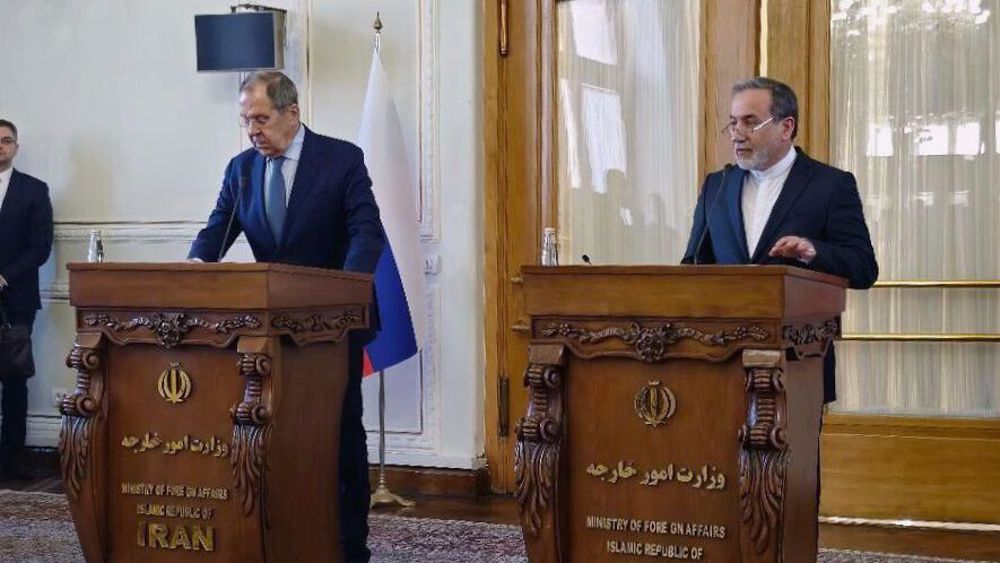
Iran rules out nuclear talks with US amid ‘maximum pressure’ campaign
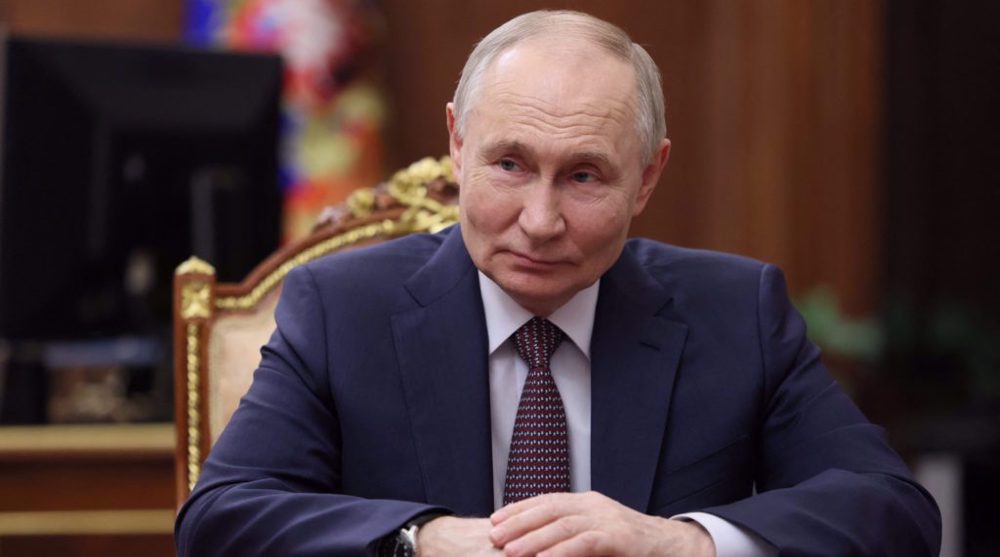
Putin says not opposed to Europeans’ involvement in Ukraine talks
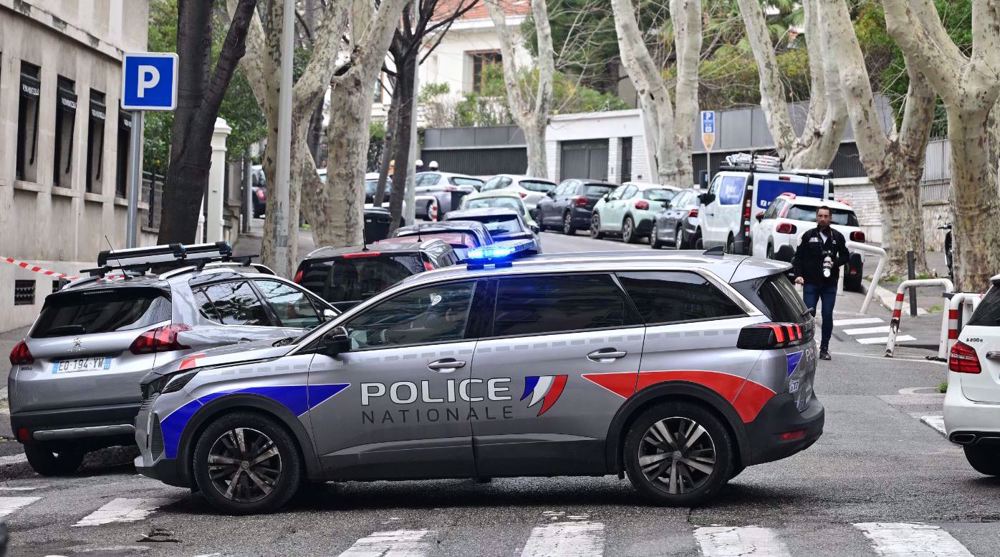
Russian consulate in France comes under attack on Ukraine war anniversary
'Shocking attack on free expression': Canadian politician slams arrest of pro-Palestine activist
West Bank Palestinians fear Gaza style destruction as Israel escalates raids
Hamas: Ibrahimi Mosque massacre testament to Israel’s criminal policy
Trump eyes Ukrainian rare earth minerals in exchange for military support to Kiev
Six Gaza children, including newborn girl, die of cold weather as Israel blocks aid
Iran rules out nuclear talks with US amid ‘maximum pressure’ campaign
Israeli tanks roll into West Bank first time in 20 years as prelude to forcible annexation
VIDEO | Trump wants Ukraine's mineral wealth


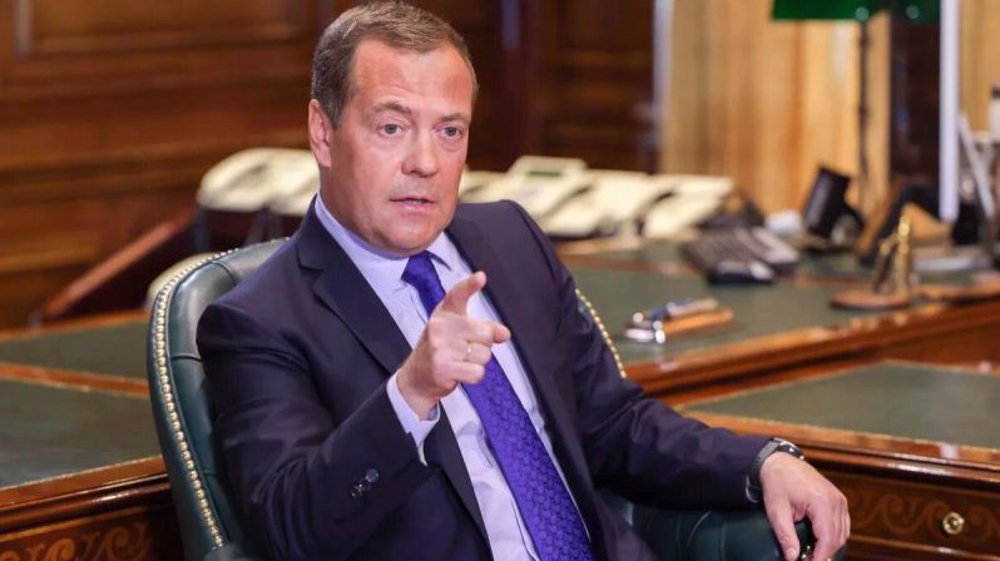
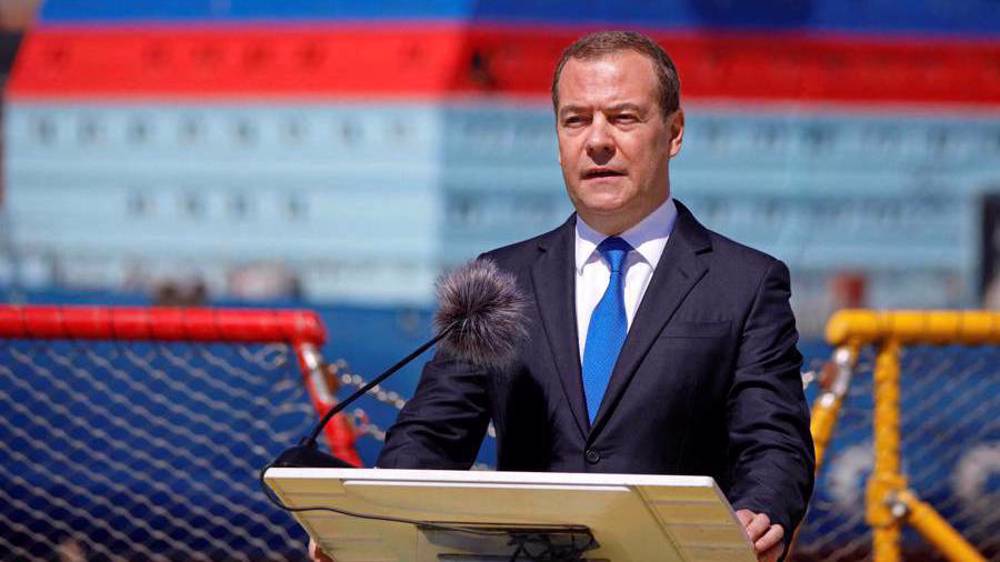
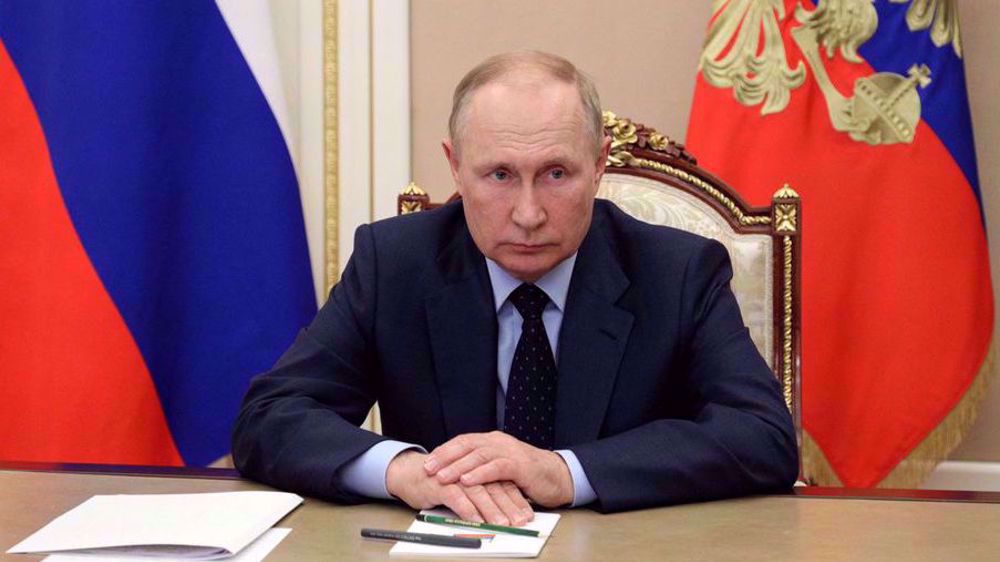




 This makes it easy to access the Press TV website
This makes it easy to access the Press TV website